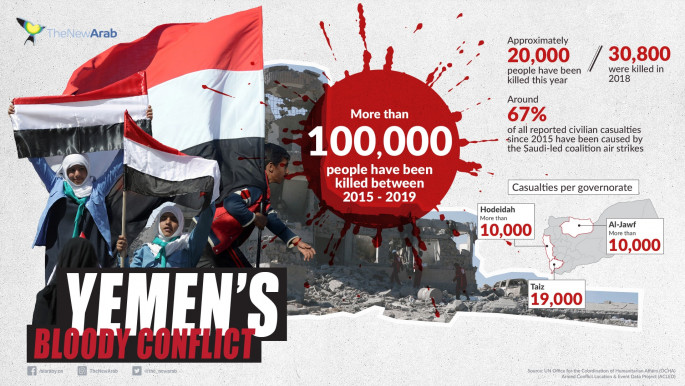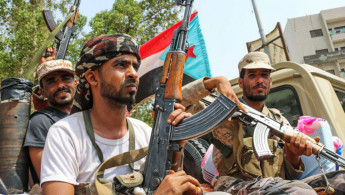Yemen government and southern separatists sign power-sharing deal after bloody rift
Yemen's exiled government signed a Saudi-brokered power-sharing deal with southern separatists on Tuesday, aimed at ending a north-south rift that has escalated during the country's war.
The deal will reportedly see the UAE-backed secessionist Southern Transitional Council (STC) handed several ministries, and the government return to the southern city of Aden, according to officials and reports in Saudi media.
"This agreement will open a new period of stability in Yemen. The kingdom of Saudi Arabia stands with you," Saudi Crown Prince Mohammed bin Salman said at a signing ceremony in Riyadh aired on state television.
"It's a joyful day in Saudi as the two sides come together."
'Congratulations'
The UN special envoy for Yemen, Martin Griffiths, congratulated the two sides on the deal which he said would propel efforts to end the wider civil war that has devastated the country.
"The signing of this agreement is an important step for our collective efforts to advance a peaceful settlement to the conflict in Yemen," he said in a statement.
"Listening to southern stakeholders is important to the political efforts to achieve peace in the country."
Security Belt Forces - dominated by the STC - in August took control of Aden, which had served as the beleaguered government's base since it was ousted from the capital Sanaa by Iran-backed Houthi rebels in 2014.
The clashes between the separatists and government forces, who for years fought on the same side against the Houthis, had raised fears the country could split into two entities.
The STC then expelled internally-displaced Yemenis from the north of the country seeking refuge from the ongoing violence.
"We do believe among those migrating south there are some planted by certain political groups", Mohamed Alsahimi, deputy head of the STC's UK office told The New Arab at the time - accusing some refugees being planted to instigate instability in the country’s south.
The warring factions in recent weeks held indirect talks mediated by Saudi Arabia in the kingdom's western city of Jeddah, which culminated in the deal signed in Riyadh.
Both Yemen's President Abd Rabbo Mansour Hadi and STC leader Aidarous al-Zoubeidi attended the ceremony.
Agencies contributed to this report.
Follow us on Twitter and Instagram to stay connected





 Follow the Middle East's top stories in English at The New Arab on Google News
Follow the Middle East's top stories in English at The New Arab on Google News


